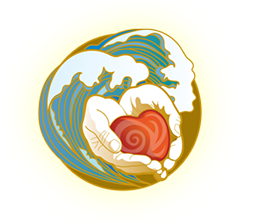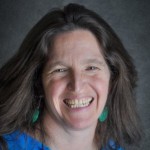This blog was originally published in 2017.
I am different. Truth is, that doesn’t make me special. We are all different from each other.
We talk a lot these days about differences between people. We have wildly different opinions or information. People on one side think the other side is misinformed. Both sides feel misunderstood.
We maintain these differences even as they do damage; in fact, we seem to be digging deeper trenches and doing more damage lately.
I don’t have an answer for why people often stand in the corners of right or wrong instead of dancing in the immensely beautiful fields of possibility in between.
I do know people can’t understand what they haven’t experienced.
If they don’t know something is possible, they won’t consider it.
And too often if they can’t see something if it doesn’t exist for them.
Too much damage has been done in the name of the visual differences of skin color, looks or weight.
Too much damage has been done because people don’t or can’t listen to each other’s experiences.
Everyone is different in many ways.
Some differences can’t be seen.
Others can be heard.
Or not.
I’m different in a way that makes me feel isolated in groups, especially big groups. It makes even the people who love me regularly frustrated with me. They say I’m not listening to them or that I don’t want to hear them. Sometimes, that’s true.
But more times, I can’t understand them. Sometimes, I don’t hear them.
I have hearing loss.
Hearing loss doesn’t make any sense to people who hear normally. For them, hearing loss is a label, not an experience.
My hearing loss makes me sound different when I talk.
I was teased for talking funny a lot as a kid; that’s how I learned that I do. As an adult, only kids ask me why I talk funny. Adults ask me where I’m from.
When I say what they’re hearing in my voice is because I have hearing loss, I get two different responses too. Kids say, “Oh,” and change the topic, satisfied. Adults will often keep on trying to figure out where I’m from rather than hear my explanation.
The ability to hear has nothing to do with the ability to listen.
The capacity to see has nothing to do with the capacity to understand.
The scale for hearing loss has six measures. The first is normal. Then there are the five measures of loss: mild, moderate, severe, profound and deaf.
My loss is profound at high frequencies and mild everywhere else. Nowhere is it normal. The graph of my hearing loss touches the bottom end of normal on one end, and the top end of deaf on the other. The graph of normal hearing runs between 0 and 20 decibels, and looks like a straight, diagonal or slightly curvy road. The graph of my hearing loss travels over 80 decibels, between 20 and 110, and looks like the head and long neck of a giraffe whose body is oddly stunted and legless.
Hearing loss is measured in decibels which are non-linear levels of magnitude. The distance between two decibels is not just a step down, but an exponential distance away.
I am often stranded in that distance. People think I’m good at tuning things out. Truth be told, I don’t hear a lot of things in the first place. People think I am uncommonly patient. I’m not. When our daughter was a baby, I held her until she stopped screaming without flinching. As he watched me soothe her until her crying ceased, my husband thought I was a saint. I am not. I couldn’t hear her high-pitched sounds that pierced the air endlessly and had him running for the door.
Every hearing-impaired person knows the frustration of not hearing what you’re expected to hear, and the gift of being unable to be irritated by an irritating sound that you can’t hear.
I can’t hear certain cell phone or alarm rings, door chimes that go with a lot of doors or the sound of most smoke alarms. I can’t hear most birds, the quaking of Aspen leaves, the depth of the babble of a stream, crickets singing to the night or prairie dogs chatting through the day. I love to backpack in the desert, but I can’t hear rattlesnakes. I used to be married to a jazz drummer. Throughout our marriage, I never knew most of the sounds that cymbals can make. When an able hearing person crinkles a piece of paper, they hear many sounds. I hear clip and clop and a static in between that I know is a remnant of a sound I can’t hear. That’s what happens during hearing tests too. I hear sounds, then static, then silence as the test moves out of my capable range.
To me the whole world is syncopated. I dance between sudden degrees of silence and the jarring arrival of too many sounds.
I have had hearing loss all my life. The prevailing explanation is that it is the result of being given too much of a certain antibiotic when I was born prematurely in 1967.
I have known what I hate: whispers, riding in convertibles, going to bars, being at long tables in restaurants, rooms that echo, feeling left out.
I have known what helps: reading lips and asking people to repeat themselves, quiet, walking in nature.
But I didn’t know what I was missing until I got hearing aids six years ago this week.
The reason that I didn’t wear hearing aids was that there was no hearing aid that could help me because my profound loss is only at higher frequencies. There was no way to hear what I was missing without amplifying everything. My profound loss is a distance of over 90 decibels at its greatest. To increase all sound by that much would have been impossible to tolerate and blown out my eardrums besides.
In 2011, I went to get my hearing checked for the first time in decades. I figured hearing aids that could help me had been around a long time, but I hadn’t bothered finding out. For me, I had downplayed my hearing loss a long time, and lived with it even longer, so I didn’t really see the point.
Turned out the new technology that could help me hadn’t arrived yet, but was about to.
I was told there was now a way to somehow translate the frequencies I can’t hear into frequencies I can.
I was intrigued.
I went back three weeks later to try on these new hearing aids.
When I put them in, my life grew exponentially. I galloped across decibels in seconds to a new beautifully sound-filled land I had never visited before.
It’s hard to find words to express what it is like to hear something for the first time. But I imagine it’s akin to how people felt when they saw their first total solar eclipse last week.
I don’t know how to find words to describe something that person with normal hearing can’t experience.
I remember when my daughter was just over a month old. I was steaming some vegetables on the stove and I noticed her looking at the rising steam. I’ll never forget that look even as I am at a loss to describe it – a mix of awe, curiosity, confusion and fear. It was the look of someone seeing something for the very first time.
Those same words are apt for describing hearing for the first time.
My daughter cried because she didn’t know what she was seeing. I cried because I’d had no actual idea of how much I was missing until I wasn’t.
The first day I cried when I heard my first whisper, two prairie dogs conversing, a familiar song that was completely differently filled with new rhythms.
And the birds. The tears for the birds I’d never heard before filled a bucket by themselves. One that will never be empty no matter how many more years I live.
Hearing things for the first time makes me cry every time – beautiful, thick, stunning tears of awe.
Six years on, I am still stunned by how full of sound the world is. In the first days of wearing hearing aids, I asked my husband how he dealt with it, and he said, “by tuning it out.” But I never learned to do that. I struggle with how to tune out sounds that I’m not used to hearing in the first place. Most hearing loss is the loss of the capacity to hear sounds that one used to hear . . . but that’s not my issue. My hearing aids help me hear all sounds better. More importantly, they also allow me to hear sounds that are new to me, sounds that I’m not used to hearing. Sounds that I can’t hear without hearing aids and never heard before I got them. I hear the new sounds inside my ear, known sounds outside. Sometimes I just stop and stand still until I can try to make sense of what I’m hearing because my brain has no reference point. Even after six years, these sounds are persistently new and unfamiliar, because it is still 44 years more familiar not to hear them.
By the time my hearing-aided life began, I had lived through decades of people‘s anger at my requests for repetition, and I had grown so tired of asking that I often just pretended to understand. I still sometimes do that if I’m not wearing hearing aids. When the sound is too much, I turn my hearing aids down. I usually have to do that several times a day. Some days I quit wearing them, and sometimes that goes on for days, or occasionally weeks, because again not having hearing aids is still my normal. And six years in to the hearing aided world, I still experience relief when I take them out, and fear when I first put them in. The sounds rush in like kids towards a piñata, fast and furious. And the emotions rush in too — a poignant mix of grief, loss, excitement, overwhelm and fear. If I turn my hearing aids all the way up in a silent room, I quickly begin to feel anxious. I can’t tell what it is that’s making me feel that way, but it happens every time.
Sometimes the grief is heavy. Part of the grief comes from the realization of all the years I couldn’t hear what I am suddenly hearing, and part of it comes from realizing that even with hearing aids I still don’t hear the way hearing able people do.
Hearing aids can be challenging. They require batteries, cleaning and maintaining, and are incredibly different in wind, and don’t help with spaces that echo, other than making the echo louder. Hearing through a hearing aid is hearing through an amplifier. It’s tingy and crisp and has unnatural echoes. The sound of my fingers typing right now are different with my hearing aids in than with them out. And every other sound is different too. And then there is the difference of wearing hearing aids and hearing sounds that only they make possible.
But I’ll take all that for the world of greater sound, for the lack of distance and isolation. To be able to travel decibels in seconds and visit the world that most people inhabit is incredible. My hearing aids have widened my world and opened my mind. They have made me more understanding, and more understandable, because with them in I talk more normally. With them in, I feel less different, less isolated, and a great deal more in awe of the magic of the world.
I’m different.
Sounds that are normal to others are magical to me.
I’ll take that difference any day I can.
Would you like to keep up to date with the happenings of the School of Inner Health and receive updates on upcoming courses, workshops, and trainings? Sign up for our newsletter here!
Also published on Medium.



